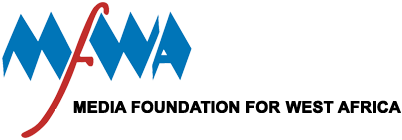Online
Ghana was one of the first countries in Africa that gained access to the internet in 1994. Ghana then got access to submarine fibre optic cable which paved the way for fixed line access to the internet. Until 2010 , however, bandwidth was limited and internet was only available at public places. Internet cafés were the main access point to the internet as well as universities, schools, and workplaces. While Accra and other large cities were ‘online’, rural regions were far apart from having an extensive access to (fast) internet.
Ghana is Africa’s most dynamic performer in ICT development
Ghana’s internet service penetration has increased over the past years and is currently at 28% (2017) , with penetration for mobile internet even at 67.6% (NCA, Q2 2016, based on subscriptions). Almost half of the internet consumers are accessing the internet from their mobile phones : costs are easier to control via prepaid plan, and internet connection is more independent from electricity, as “dum-sors” – power cuts – happen regularly. Related to that, the sharpest rate of growth was achieved in mobile-cellular subscriptions, which doubled to 20 million from 2013 to 2017. All in all, Ghana was one of the most dynamic countries in 2010-2015, looking at the ICT Development Index (IDI), improving its ranking from 130 to 109 . This was especially based on the improvement of access to internet, investment in new infrastructure, and the growing use of mobile broadband.
Online news less popular than radio & TV
While 80.2% of Ghanians use the internet every day, online news sources are not the most popular ones . Only 6.4% turn towards digital media when looking for information – which makes the internet less popular than radio and TV but more frequently used than to consult family and friends directly, or to read a newspaper.
A Dutch leading spear & websites as spin-outs of traditional media
The most popular websites all belong to companies that also publish other media outlets, with cross-media activities becoming popular. Interestingly, the most popular online news source – GhanaWeb – belongs to a company which is based in The Netherlands. Bellaart Investments B.V. has three subsidiaries. Two of them are on the online market, but based on the official documents of the Dutch companies’ register it could not be established which company is actually running the homepage. For the online news market, data was only available in unique visitors but not as audience share – which inhibited computation of audience concentration.
Sources
Internet Live Stats (2017). Ghana Internet Users. Accessed 17 July 2017.
National Communications Authority (2016). Quarterly Statistical Bulletin on Communications in Ghana. p.13.
IT News Africa (2015). Study Reveals African Mobile Usage Stats. Accessed 17 July 2017.
Mawuli Tsikata (2015). Where Ghanaians turn to for information. Accessed 20 July 2017.
International Telecommunication Union (2015). Measuring the Information Society Report. Volume (2015).
National Communication Authority (2017). Mobile Data Subscriptions in Ghana from 2013 to January 2017.












